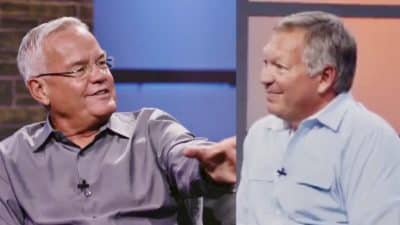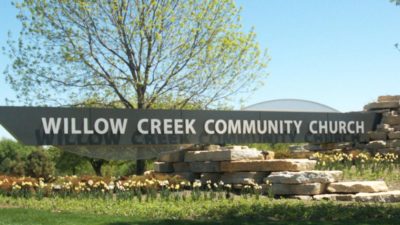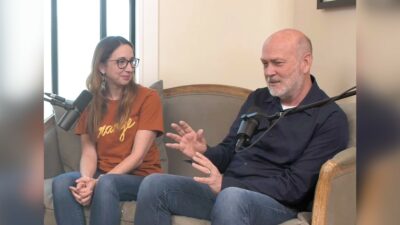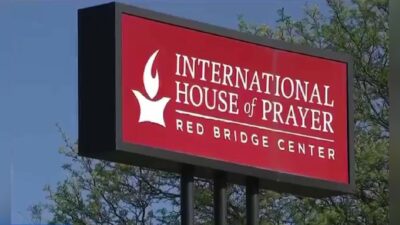As both a former elder board chair and a lawyer who’s represented some of Bill Hybels’ victims, Mitch Little has gained a unique perspective on leadership.
He’s seen Willow Creek’s elders kowtow to their celebrity pastor. But he’s also seen the elders at his own Bent Tree Bible Fellowship in Dallas, Texas, area rise to the challenge of navigating a board through a major transition when the senior pastor resigned.
The key, Little says, is character.
“If your leadership lacks the requisite character and experience, no manual will help you,” Little stated in a talk he gave at Dallas Theological Seminary. “If you have the appropriate level of character and experience, no manual is necessary.”
That said, Mitch Little is a wealth of knowledge when it comes to godly leadership. And his insights are extremely valuable for anyone seeking to lead well.
Your tax-deductible gift helps our journalists report the truth and hold Christian leaders and organizations accountable. Give a gift of $30 or more to The Roys Report this month, and you will receive a copy of “Hurt and Healed by the Church” by Ryan George. To donate, click here.
In part three of this series, we talked with Little about lessons he’s learned through what’s been an extremely intense past several years. Follow the hyperlinks to read part one and part two of this series.
The following Q&A has been lightly edited for clarity and conciseness.
Jackson Elliott: You helped lead Bent Tree’s congregation through a crisis period when their senior pastor resigned. What did your elder board do right and wrong in the midst of that crisis?
Mitch Little: Our senior pastor went on an extended leave to deal with his own personal struggles prior to returning and feeling like he needed to resign. I think we succeeded by creating an atmosphere of accountability around him and his replacement team during his absence. I think we failed by not preparing earlier for the eventuality that he would not recover and return to his leadership role. In retrospect, it was wishful thinking (and, in all cases, informed by our deep relationship with him) that he would be able to return and function at the same high level as before. And we needed to develop a long-term replacement solution.
I think the challenge (not sure whether to call it either a win or a loss) is determining what and how much to say about the situation while you are in the middle of a crisis like that. You end up balancing the personal needs of the man against the corporate needs of the church. And without clear Biblical guidance on the topic, you end up sharing as much as you can without prejudicing or disrespecting either side.
Elliott: You’ve both been an elder board chair and you’ve represented women who have been victimized by elder boards. How have both these experiences impacted your view of church leadership?
Little: Representing women has opened up the door for a lot more self-criticism. A lot more asking, “If I had my lawyer hat on, how critical would I be of my leadership in or handling of this situation?” On the other hand, wearing my lawyer hat, I’ve been able to see that a lot of the problems boards cause start with that little “pull” you feel to protect yourself or your organization. So, when I feel that “pull” myself, I know it’s pencils-down time and that I need to reevaluate.
Elliott: What’s the most important characteristic a board must have?
Little: The most important characteristic a board must have is independence, even more so than sheer competence or experience. They really need to be independent of the people who are operating the organization and outside the concerns of those operating the ministry.
What Harvest Bible Chapel and Willow Creek got wrong was that the boards were too emmeshed with the ministry. Willow wasn’t always that way. They made sacrifices that cost them their independence. They had a more independent board, and Bill Hybels consolidated his power so effectively that the board lost their ability to oppose him. If you make enough concessions to senior leadership, you lose the ability to critique them.
Elliott: How can church members work to make boards at their church accountable after things go wrong?
Little: I think boards that are broken are very effective at preventing criticism. The most effective thing you can start doing is writing a letter to the full board of your church. If you have a one-on-one conversation with a board member about your pastor having a deer hunting ranch, they can easily dismiss it. The way you require a board to respond to your complaints or problems is by writing a letter. You have to get the issue in front of the full board for consideration.
Elliott: How do you know when a system is broken?
Little: If the board of a church is confronted with a situation that is clearly unbiblical and doesn’t respond immediately, that’s a broken system. Another is the misuse of Scripture to address complaints and criticism. Churches like to use Scripture to insulate themselves from criticism, Matthew 18 being a good example. They tell people, “You’re out of order and need to trust us.” It’s when they resort to bullying or demand trust when you know something’s wrong. Ravi Zacharias International Ministries (RZIM) should be studied in seminary as an example of toxic nonprofit leadership. When someone is raising a Biblical criticism and the organization responds by attempting to silence, belittle, or criticize the truth teller, that’s evidence that the system is broken.
Elliott: What are some warning signs that your church or ministry has gone wrong?
Little: The primary warning sign that you’re in an abusive culture is an insular, inward focused culture. Abusive cultures are more focused on the thriving of the system than they are on ministry. An excessive focus on order, process, hierarchy, and authority is a pretty good sign that you’re in an abusive church culture. This culture pervades all denominations and expressions of the church, and you must push back against it. When people start talking about loyalty and trust in the church, that’s a bad sign.
Elliott: How do you know when your ministry board is getting unhealthy?
Little: Some warning signs include excessive dependency on one or two people to make decisions or set the agenda. A major warning sign in a ministry context is finding that you’re making decisions that are more oriented towards the thriving of an individual (celebrity or otherwise) or continuity of the organization, rather than the people attending the church or benefitting from the ministry.
Elliott: Lots of leaders face many allegations over the years until suddenly something brings them down. What tends to cause the tipping point? How can ministry boards speed up the discovery of bad leaders?
Little: It’s almost always the activity of someone who is extrinsic to the broken system that foments the change. With Willow Creek, it was secular media like the Chicago Tribune and New York Times. With Harvest, it was bloggers and Erich “Mancow” Muller taking audio public. With Ravi Zacharias, it was Lori Thompson vocally sharing her experiences. We could go on. It is very rare that someone inside the broken system can repair it. It’s the old expression, “Systems are perfectly designed to generate the results that they generate.” Systems typically cannot self-regulate. That’s why independent investigations are so important when things go really badly.
Elliott: Are people good at detecting lying leaders?
Little: The answer is truly “no.” Having worked as a trial lawyer for 17 years now, I can say with confidence that people are not as good at detecting lies as they think they are, myself included. That’s why documentary evidence is so important. In all three cases mentioned above—Willow, Harvest, RZIM—documentary evidence was plentiful and clearly indicated whether the culture was corrupt.
But the leaders didn’t look at it. If they did happen to look, they interpreted the evidence in a way that would allow them to reconcile what they already believed with what the evidence indicated. We call that confirmation bias. The boards in each case lacked sufficient objectivity to see things how they were instead of how the organization wished for them to be.
Elliott: After your ministry board or integrity monitoring systems have made a mistake, how do you make things better?
Little: It depends on what the mistake is. Willow Creek, Harvest and RZIM’s cases require the removal of the entire echelon-level leadership to reform the system. In other cases, it’s often about who does wrong, how they do wrong and why they do wrong. Respectively, these cases may require only the removal of the pastor or individual, systemic or process reforms, or a theological reset or time to reevaluate the purpose of the organization.
 Jackson Elliott is a Christian journalist trained at Northwestern University. He has worked at The Daily Signal, The Inlander, and The Christian Post, covering topics ranging from D.C. politics to prison ministry. His interests include the Bible, philosophy, theology, Russian literature, and Irish music.
Jackson Elliott is a Christian journalist trained at Northwestern University. He has worked at The Daily Signal, The Inlander, and The Christian Post, covering topics ranging from D.C. politics to prison ministry. His interests include the Bible, philosophy, theology, Russian literature, and Irish music.




















6 Responses
Great interview. We need this wisdom bundled in a book and dispersed to laypeople so they know what kind of churches to attend and support.
Speaking from personal experience with a broken church board, this interview, as with the two others in this series, is insightful and incredibly relevant. May the Lord use this series as people take it to heart and implement it in their lives and churches/ministries.
Thanks to The Roys Report for doing the difficult, sometimes thankless (and worse) work of being an extrinsic voice, especially for those who have been silenced and abused, in bringing godly change to broken systems for the healing of lives and benefit of His Church.
One characteristic of this series on leadership has been vagueness. If the presenter is using sentences that sound good, but the reader can’t think of a specific illustration, that’s a sign that the interviewer needed to ask, “Can you give a specific example of this?”
For example, Mr. Little said, regarding the senior-pastor-replacement situation, “I think we succeeded by creating an atmosphere of accountability around him and his replacement team during his absence.”
What does that mean? Why was he absent? What is “his replacement team”? What specific events show “an atmosphere of accountability”?
This author writes…
“The key, Little says, is character.”
“If your leadership lacks the requisite character and experience, no manual will help you,” Little stated in a talk he gave at Dallas Theological Seminary. “If you have the appropriate level of character and experience, no manual is necessary.”
——-
WE, His Sheep, His Ekklesia, His Church, His Body…
Already have a manuel for the character of…
Elders who desire to be oveerseers…
In 1 Tim 3:1-7, and Titus 1:5-8…
That many pastors, leaders…
Tend to “Ignore” or “Twist.”
Here’s just three Qualifications in Titus…
1 – Must Be *BLAMELESS.*
2 – *JUST,* 3 – *HOLY,*
Titus 1:5-8 KJV
…ordain elders in every city…
If any be *BLAMELESS,*
the husband of one wife,
having faithful children
NOT accused of riot or unruly.
1 – For a bishop “Must Be” *BLAMELESS,*
as the steward of God;
NOT self willed, …
NOT soon angry,
NOT given to wine,
NO striker,
NOT given to filthy lucre;
a lover of hospitality,
a lover of good men,
sober,
2 – *JUST,*
3 – *HOLY,*
temperate;
1 – *Must Be*
Strongs #1163, die. – It is necessary (as binding).
Thayer’s – necessity established by the counsel and decree of God.
This *must be* is the same Greek word…
You *must be* born again. John 3:7
Seems to be a small word but very important. Yes?
1 – BLAMELESS
Strongs #410 anegkletos – unaccused, irreproachable, blameless.
Thayers – cannot be called into account, unreproveable, unaccused.
Dictionary – Without fault, innocent, guiltless, not meriting censure.
How many, pastor, overseers, would be leaders, who honestly examine themselves, seriously considering this one qualification, can see themselves as BLAMELESS, above reproach, without fault, innocent, and thus qualify to be an overseer?
And if you can see yourself as BLAMELESS?
Is that pride? And NO longer without fault? :-)
If a pastor? leader? does NOT Qualify???
Shouldn’t they just remove themselves?
And be a good example to the Flock?
Here are two more “Qualifications” found in Titus…
That most pastor/leader/overseers, “Ignore,”or “Twist.”
2 – JUST
Strongs #1342 – dikaios {dik’-ah-yos} from 1349;
Thayers – 1) righteous, observing divine laws
1a) in a wide sense, upright, righteous, virtuous,
keeping the commands of God
1a2) innocent, faultless, guiltless
1a3) used of him whose way of thinking, feeling, and acting
is wholly conformed to the will of God,
3 – HOLY
Strongs #3741 – hosios {hos’-ee-os}
Thayers – 1) undefiled by sin, free from wickedness,
religiously observing every moral obligation, pure holy, pious.
——-
Now that’s three tough Qualifications for
“pastor/leader/elder/overseer” – Yes?
1 – Must Be BLAMELESS.
2 – JUST. 3 – HOLY.
——-
Do you know many? any? pastors? leaders?
Who meet just these three qualifications?
——-
What should a pastor, leader, do?
When they know they do NOT Qualify?
——-
Ps 138:6
Though the LORD be high,
yet hath he respect unto the lowly:
but the proud he knoweth afar off.
Ps 40:4
Blessed is that man that maketh the LORD his trust,
and respecteth not the proud,
nor such as turn aside to lies.
This is a great article, and I deeply appreciate Little’s comments. At the same time they fail to acknowledge the inherent power differential between many boards and church members. Many church systems are set up in ways that allow board members to become the lapdog of senior pastors. Writing a letter to the full board, as I did (and which included all members of the pastoral staff), resulted in virtually no response by any of the twelve board members or pastors. This lack of response from people with whom my husband and I had forty years of shared fellowship and investment in ministry, while causing additional wounds, was quite telling. It indicated to us how deeply and pervasively the board had been manipulated by a former pastor who openly described himself as a CEO, not a shepherd. The fact that he succeeded in holding this position for a dozen years through sheer force of his commanding personality and control tactics reveals just how much long term damage a toxic leader can do. Even when the leader leaves, the unhealthy system continues to infect and degrade the health of the church body it was designed to preserve. It is a rare church, indeed that will gather the necessary courage and integrity to humbly face their mistakes honestly and do the hard work of confession, repentance, and restoration. I will spare readers here the painful–but in retrospect predictable–path of our nightmare experience, except to add that my husband and I discovered since subsequently hearing other stories like ours, just how quickly those who raise questions about pastors’ lack of accountability quickly become the “problem” in order for church leaders to keep the status quo intact.